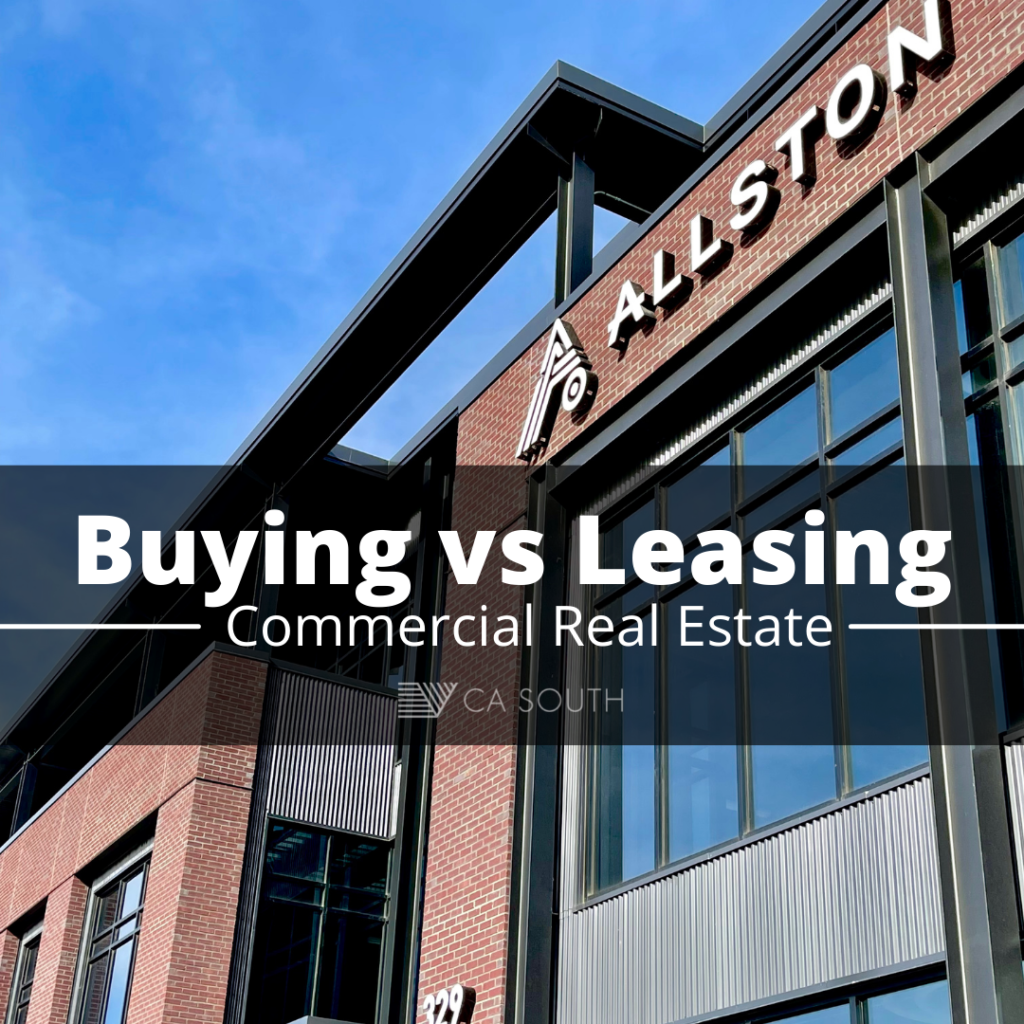“Every person who invests in well-selected real estate in a growing section of a prosperous community adopts the surest and safest method of becoming independent, for real estate is the basis of wealth.”
-Theodore Roosevelt
Several factors go into choosing the right strategy for your business, including cash outflows, recurring costs, tax implications, property value, business equity and more. 1
When you buy a property, you can either pay cash upfront or finance it with a loan. With a lease, you rent the property for a set term, at which point you must renegotiate if you wish to continue using it.
Although the value of a business has little effect on the value of real estate, owning real estate as a business asset offers some positive financial advantages. Some of the pros of buying a commercial property include: equity in the property over time (appreciation), more control over your work space, and tax breaks, including depreciation.
Some of the cons of buying commercial property include: prepayment of penalties, liability insurance and upfront down payment. Further operations investment might produce greater returns than the real estate investment, thus creating an opportunity cost that accompanies real estate ownership.
In a current growth market like Nashville, the likelihood of the asset appreciating at an accelerated rate, along with inflation causing real asset value growth, more and more business owners are turning to purchase their office space versus lease. https://allstonoffices.com/ was a project devised with this in mind.
1 https://www.valuepenguin.com/small-business/buying-vs-leasing-commercial-real-estate
2 https://www.ccim.com/cire-magazine/articles/lease-versus-own-decision/

